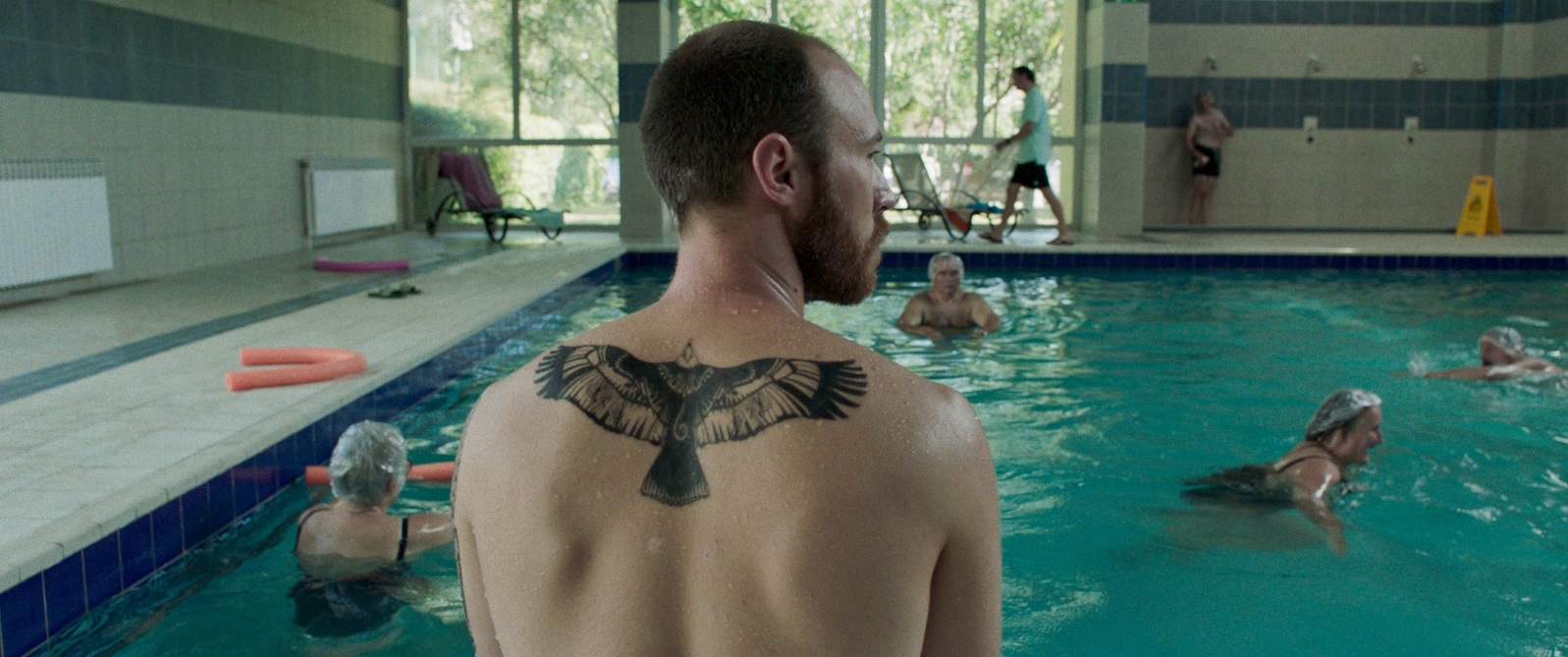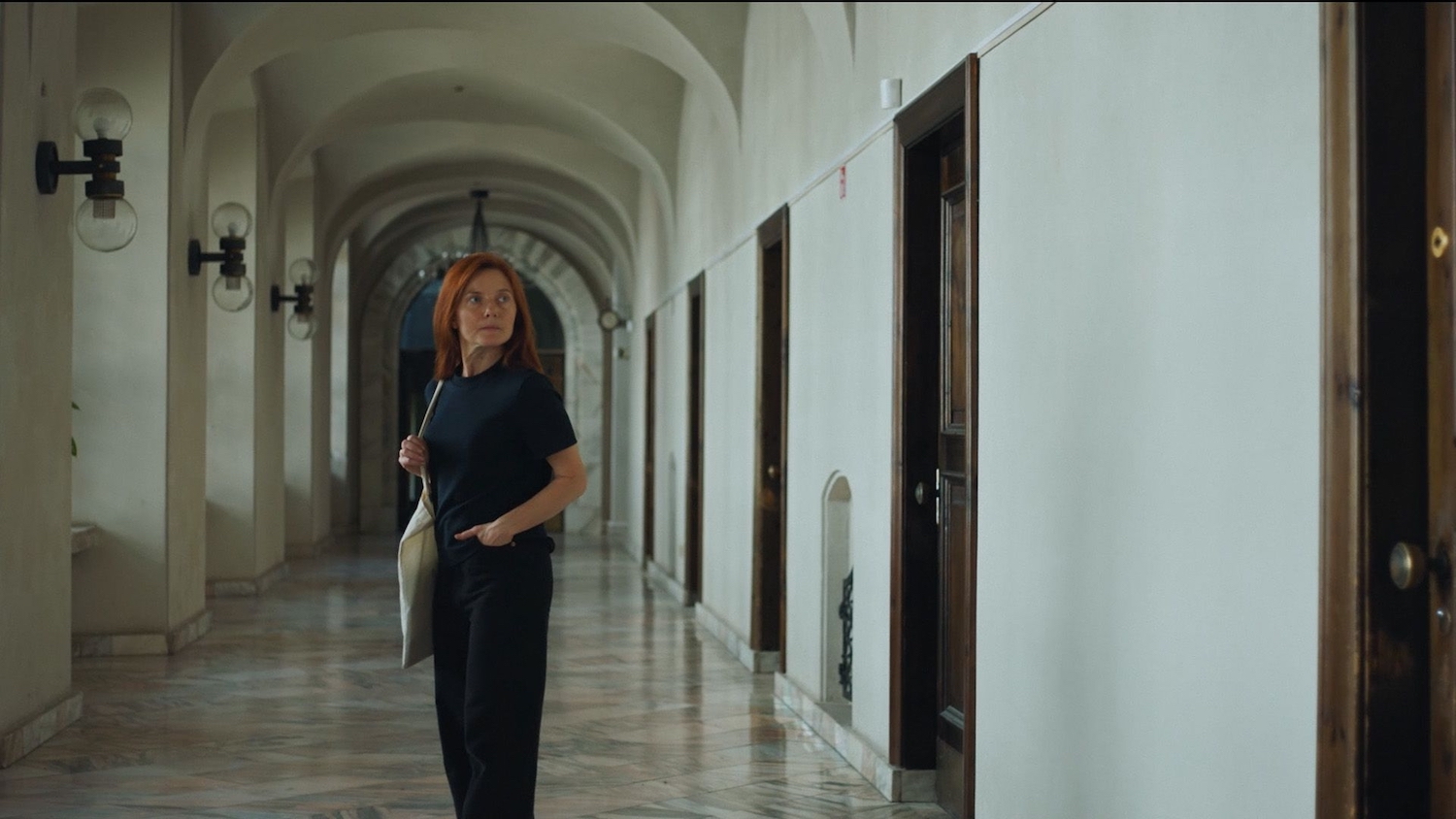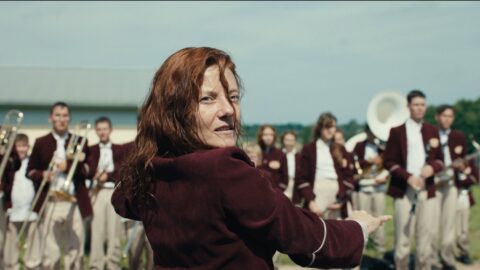My whole thing at Tallinn Black Nights Film Festival is the First Feature Competition. New talents popping up left, right and centre. They put everyone in the same hotel. During the coronavirus years, after the bars closed early, I’d usually end up drinking in the same hotel room as the filmmakers, young guys, around my age. Good times. Thank God their films are, for the most part, actually quite good. There’s nothing worse than talking to someone who makes a lousy picture.
I couldn’t go this year. It’s a shame. But the World Cup has begun, so I would’ve been constantly ducking out of cinemas to find the nearest Irish pub. International football always comes first. Always.
In the meantime, we have online offerings to survey before Qatar v Ecuador. Two films: Croatia v Lithuania. Both excellent in their own way. Both a promise, potentially, of even greater things to come.
—

The Road(s) to Recovery
The mystery spa or retreat lying in a remote area, filled with old, odd people recuperating, is a wonderful genre in and of itself. It’s possibilities were exhausted by Thomas Mann in his epic novel The Magic Mountain, an allegory of the infinite forces that lead to the First World War. But it can lean all the way from horror (Gore Verbinski’s slightly underrated A Cure For Wellness, 2016) to light comedy (Paolo Sorrentino’s slightly overrated Youth, 2015).
Somewhere in the middle is Pelican (Filip Heraković, 2022, above), a tale of dissatisfaction and alienation that uses a gently surreal bent to explore a goalkeeper stuck in stasis. Staying at a functional Croatian resort, mostly filled with Italian pensioners, Josip (Edi Ćelić), is a tall, remote man. Injured after a skiing accident, his physio sessions and long days by the pool give him an opportunity to reevaluate, despite considerable disinterest in almost anything. ®
When his girlfriend comes to stay, she asks him how much he misses her, “On a scale of one to 10.” He says three. He says it’s a joke, but we all know it’s not. Meanwhile, the other guests seem to enter a severe state of relaxation, slowly, peacefully dozing off and dying. Not a bad way to go. Josip is worried he might join them. He should do something differently.
But he’s removed. So is the camera. Heraković favours medium takes with plenty of empty space, Josip seemingly marooned from his own story. Aided by evocative sound design — with clips of relaxing meditation videos and ambient background noise (making it a lovely headphones watch) — this allows the first-time director to slip in deviant plot twists, detours and reroutes, including an expertly-rendered off-key vacuum-selling seminar.
Ćelić might be starring in a whimsical surrealist tragicomedy, but he acts like he’s in something much darker. Withdrawn, reclusive, knowing his former glory is behind him — and showing it with his whole body — he is mostly sympathetic if hard to be truly invested in. Dreamlike but rooted in realistic, awkward interactions, it displays Heraković’s talent in building strange situations out of natural performances. One to watch, from afar, when he finally leaves the resort.

Divorce, Catholic Style
Catholics can get divorced. They just call them annulments. But they can only be granted in special cases. Like, you got drunk and drove by a church by accident. What it means for certain people in countries like Lithuania, is they have to get divorced twice.
In Parade (Titas Laucius, 2022, feature image and above), Miglė (a spiky, combative Rasa Samuolyte) is already remarried, and has settled into a rhythm with her new husband. She is the conductor of the school band, preparing them for a ceremony in honour of the apparently famous Polish-Lithuanian hussar Andrzej Młocki (Googled, doesn’t exist?). In a wonderful opening scene, her daughter smashes the teeth of a rude companion, starting the first of many warm, recognisable family arguments. She tells her daughter she was right to take revenge, but she shouldn’t take an eye-for-an-eye, but exact the same punishment she was doled out.
This theory of equal justice is put to the test when her ex-husband Eimantas (Giedrius Savickas) calls for a divorce. Not in the eyes of the state, but the eyes of the Lord. He wants to get married again, but properly. In a church. They take these things seriously in Lithuania. Well, some people do. Catholics do. She doesn’t appreciate all the unwanted attention, leading to a face off between leads that doubles up as a sly commentary on ancient mores within a modern world.
In the hands of a Hollywood director, this screwball premise — turning the remarriage genre into a re-divorce genre — would provide the opportunity for people to fall over, get into sparring arguments, get bitten by various animals, then finally recognise the spark that made them so perfect together in the first place. Instead Laucius is far more interested in the nuances of Catholic divorce and its impact on its heroine than simply adhering to genre. Still, there are plenty of funny moments; like the couple trying to bribe an old friend to turn fake witness, or the film’s odd, yet fittingly conceived finale.
Then there are the more heartfelt beats. Laptop of the raucous 90s wedding party, people drunk as sin and dancing like no tomorrow, a beam of light strikingly contrasting against the cold darkness of a contemporary flat. Or the obligatory euro-dance sequence to a nostalgic Lithuanian pop song. Here, the lives of our heroes, caught up in the day to day, are given a chance to stretch back into the past’s embrace, before finally moving on and letting go. The effect is like a long, warm hug, and far more restorative than any treatment at Josip’s spa.
And that’s enough for me. The main event (football) starts just about the same time as this article goes live. In this contest Lithuania has the advantage, but I wouldn’t count out Croatia on the return leg. Let’s see what happens if these two ever make a second film.
Redmond is the editor-in-chief of Journey Into Cinema.




